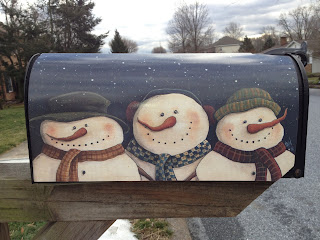A very happy two hundred years to you, Charles Dickens, born February 7, 1812. Quite possibly the greatest novelist ever.
Bleak House gets my nod as the finest of his books. Pace Elmore Leonard—whose Ten Rules of Writing has “Never open a book with weather” as rule number one—Bleak House’s early chapters focus in obsessive detail on some nasty November inclemency that's drenching greater London.
Descriptions of thick mud and a smoke-filled fog set the mood in the first chapter—London and its institutions aren't easy to navigate, both literally and figuratively.
In chapter two, the metaphor—for one character's aching sense of loss, airless life, and deeply repressed emotion—is rain:
“My Lady Dedlock has been down at what she calls, in familiar conversation, her ‘place’ in Lincolnshire. The waters are out in Lincolnshire. An arch of the bridge in the park has been sapped and sopped away. The adjacent low-lying ground for half a mile in breadth is a stagnant river with melancholy trees for islands in it and a surface punctured all over, all day long, with falling rain. My Lady Dedlock’s place has been extremely dreary. The weather, for many a day and night, has been so wet that the trees seem wet through, and the soft loppings and prunings of the woodman’s axe can make no crash or crackle as they fall. The deer, looking soaked, leave quagmires, where they pass. The shot of a rifle loses its sharpness in the moist air, and its smoke moves in a tardy little cloud towards the green rise, coppice-topped, that makes a back-ground for the falling rain. The view from my Lady Dedlock’s own windows is alternately a lead-coloured view and a view in Indian ink. The vases on the stone terrace in the foreground catch the rain all day; and the heavy drops fall, drip, drip, drip, upon the broad flagged pavement, called, from old time, the Ghost’s Walk, all night. On Sundays the little church in the park is mouldy; the oaken pulpit breaks out into a cold sweat; and there is a general smell and taste as of the ancient Dedlocks in their graves. My Lady Dedlock (who is childless), looking out in the early twilight from her boudoir at a keeper’s lodge and seeing the light of a fire upon the latticed panes, and smoke rising from the chimney, and a child, chased by a woman, running out into the rain to meet the shining figure of a wrapped-up man coming through the gate, has been put quite out of temper. My Lady Dedlock says she has been ‘bored to death.’”
* * * * * *
How good is that? (I love "the oaken pulpit breaks out into a cold sweat.") You won’t be surprised to discover the next sixty or so chapters present Lady Dedlock a rather hard row indeed. The heavy drops fall, drip, drip, drip.
Not that everything is bleak in Bleak House. The sun does shine for many, if not all. Read it for the great characters, for the great twisting plot that eventually ties them all together.
Read it to raise a toast to Mr. D, a couple of centuries young.















